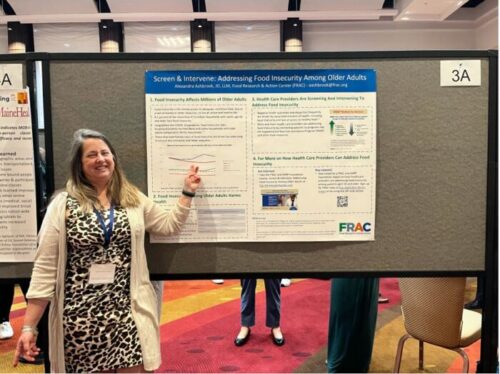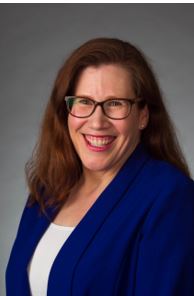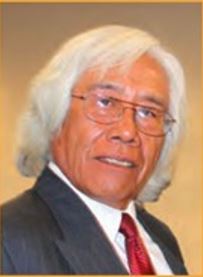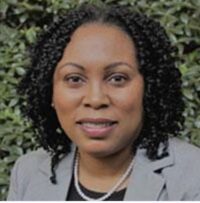April 11, 2023
The American Society on Aging’s annual conference drew thousands of attendees to Atlanta, Georgia, last month to participate in sessions on topics ranging from how to be anti-ageist to developing age-friendly and climate-smart communities.
I presented a poster session on how the pandemic only worsened food insecurity and the health of millions of older adults. Black, Latinx, and Native American older adults disproportionately faced struggles putting food on the table due to underlying structural discrimination and other inequities.
I urged attendees to explore opportunities for health care providers to screen older adults for food insecurity and connect them to the Supplemental Nutrition Assistance Program (SNAP) and other nutrition programs. I also shared that the Food Research & Action Center and AARP Foundation will be releasing survey results in June exploring how health providers who work with adults, age 50 and older, are addressing food insecurity.

During the conference, I had the chance to meet with aging experts from across the country and learn more about how their organizational work intersects with efforts to address hunger among older adults.
Aging Organizations That Anti-Hunger Advocates Should Know
Here are four of the many aging organizations that anti-hunger advocates should get to know:

USAging represents and supports the national network of Area Agencies on Aging (AAAs). These agencies “help older adults and people with disabilities throughout the United States live with optimal health, well-being, independence and dignity in their homes and communities.”
AAAs administer Older Americans Act programs and services, including the Title III nutrition programs, which provide home-delivered and congregate meals. Anti-hunger advocates can connect with their local area agencies on aging.
At the AAA collaborative session, Amy Gotwals, USAging’s Chief of Public Policy and External Affairs, shared how AAAs are facing unique challenges since COVID-19 funding is drying up, and helpful Public Health Emergency policies are being terminated.
A key opportunity for hunger advocates will be to push for more appropriations for the Older Americans Act (OAA). The President’s budget and its “significant and essential OAA increases” is a step in the right direction.

SAGE’s powerful tagline “we refuse to be invisible” encapsulates its work to ensure that LGBTQ+ elders are heard and get the culturally-competent support needed to live with dignity and respect.
At a session on federal advocacy, Aaron Tax, Managing Director of Government Affairs and Policy Advocacy, shared a number of stories about how many older LGBTQ+ people grew up in a time when they had to stay in the closet for fear of losing their jobs or their entire way of life. Given these experiences in part, Aaron shared how LGBTQ+ elders may be reluctant to access federal nutrition and other benefits for fear of experiencing stigma or discrimination.
Aaron stressed how it’s critical to create policies for LGBTQ+ people, so they can live life authentically and get services to be independent. One key policy gain that supports LGBTQ+ elders’ access to nutrition programs, nutrition services, and other Title III-funded supports is the recent OAA requirement that requires every State Unit and AAA across the country to conduct outreach to LGBTQ+ elders, collect data on services that the older LGBTQ+ population needs, and assess whether they are meeting their needs.

National Indian Council on Aging (NICOA), which was founded in 1976, advocates “for improved comprehensive health, social services, and economic well-being for American Indian and Alaska Native elders.” At a session on federal advocacy, NICOA Executive Director Larry Curley provided key information on opportunities to support Native American older adults, and the unique attributes and challenges they face.
One of Curley’s points that particularly resonated was the opportunity for Tribal elders to share stories, traditions, and language with younger Tribal members. He also rallied the attendees to help ensure that appropriations for the Older American Act’s funding for Title VI Services for Native Americans be comparable to those under Title III Grants for States and Community Programs on Aging.
Learn about specific NICOA’s recommendations for the Older American Act Reauthorization and ways for anti-hunger advocates to engage.

AmeriCorps Seniors matches 140,000 “AmeriCorps Seniors” yearly with service opportunities offered by our partner organizations. Adults, 55 and older, could be eligible for several programs, including the Americorps Seniors RSVP, which matches AmeriCorps Senior volunteers with community organizations. Some volunteers can receive a stipend from AmeriCorp for work with community groups.
Atalaya Sergi, the Director of AmeriCorps Seniors, shared how many AmeriCorps Seniors already participate in programs to address hunger and improve nutrition, such as helping people apply for public programs like SNAP and Medicaid, staffing meal sites, and supporting community gardens. During the COVID-19 pandemic, volunteers helped collect and distribute more than 15.6 million pounds of food. Older adult volunteers report better health and longevity having served their community. Hosting an older adult volunteer is a win-win for both anti-hunger groups and older adults.
Ensure No Older Adult Goes Hungry
This year’s On Aging Conference personified an anti-ageist experience that showcased the impressive network of older adult organizations, the vitality of older adults, and the need for all of us to stand up for their rights — including ensuring that no older adult goes hungry.
For more on FRAC’s work on older adults visit https://frac.org/hunger-poverty-america/senior-hunger.


